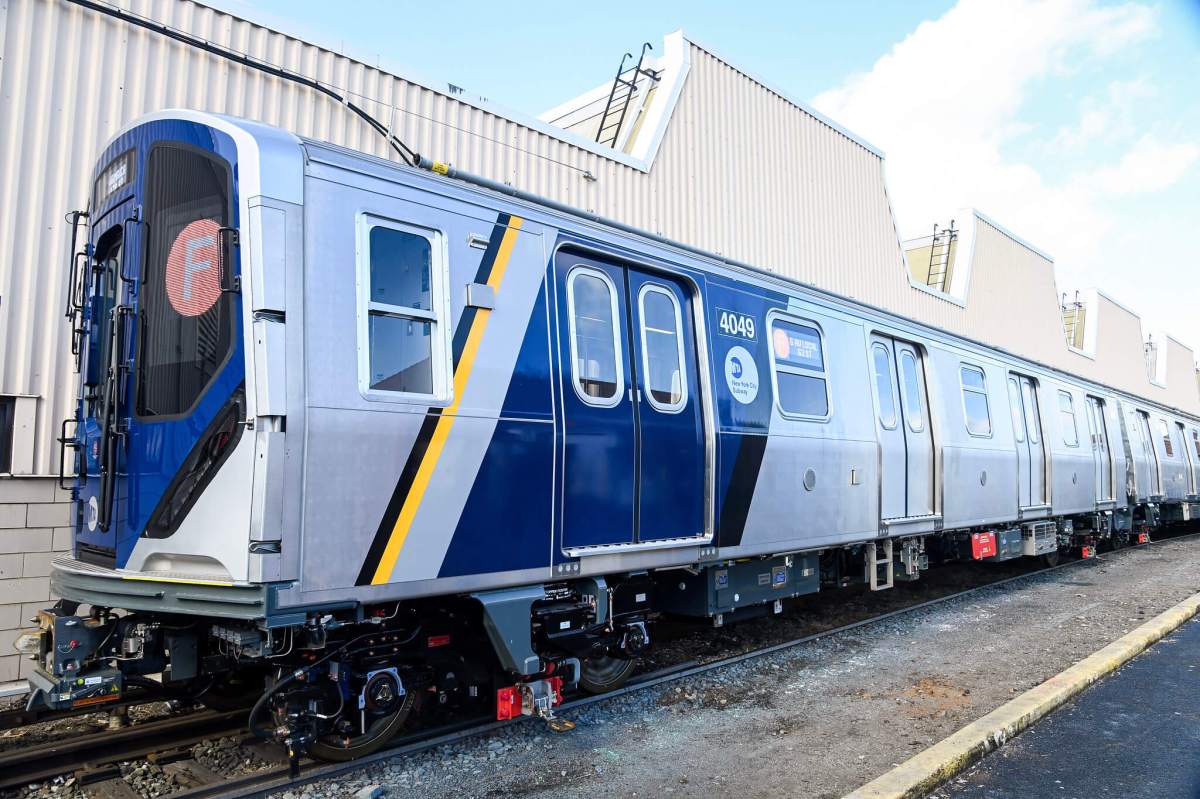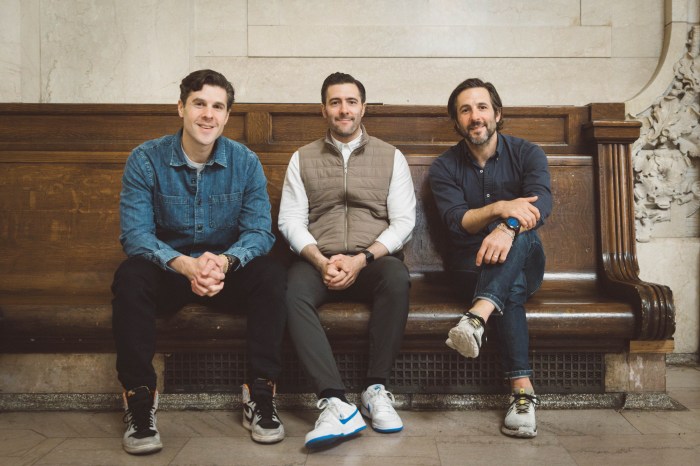The Metropolitan Transportation Authority will roll out its brand-new R211 subway cars into passenger service this year, agency honchos announced Friday ahead of a showcase ride aboard the new choo-choo on the F line.
The MTA intends to place 515 R211s into revenue service this spring, while another 20 cars featuring an “open gangway” design — where carriages are connected like an articulated bus, allowing safe movement between cars — are expected to begin their tenure on the A/C line by the end of 2023. Testing is underway for both models, and the open gangway cars were showcased to the public for the first time Friday.
“Putting these cars into service will be a huge milestone in the MTA’s efforts to modernize our fleet,” MTA Chair and CEO Janno Lieber said in a statement. “These modern subway cars will of course upgrade the passenger experience, but they will also complement our signal improvement efforts and allow us to run more trains and provide more frequent subway service.”
The open gangway R211, loaded with MTA brass and reporters, sojourned on the F line from the Coney Island yard to Kings Highway in Brooklyn, providing the public a tantalizing glimpse into the future of their commute.

The R211s, built in Nebraska by the Japanese multinational Kawasaki, feature wider doors to speed up boarding, fold-up seating for those with disabilities, and upgraded digital displays with more station-specific information, the MTA says. Every car also comes equipped with security cameras and is pre-installed with communications-based train control (CBTC), the modern signaling technology gradually replacing the subway’s Great Depression-era analog signals.
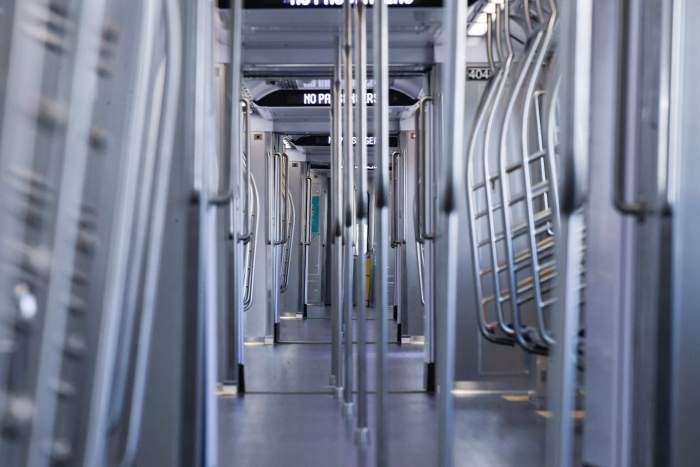
The R211 will ultimately replace the MTA’s oldest rolling stock still in service: the R44, which entered service in 1972 and presently runs on the Staten Island Railway, and the R46, on the rails since 1975 and presently assigned to the A, C, N, Q, and W lines along with the Rockaway Park shuttle.
Those have been the oldest cars in the system since the retirement of the R32 “Brightliners” in 2022 after nearly 60 years in service, the longest tenure of any subway cars on Earth at the time. The R46, known for its retro decor and “conversational seating” arrangement, will be missed, but its time has come, said Lieber.
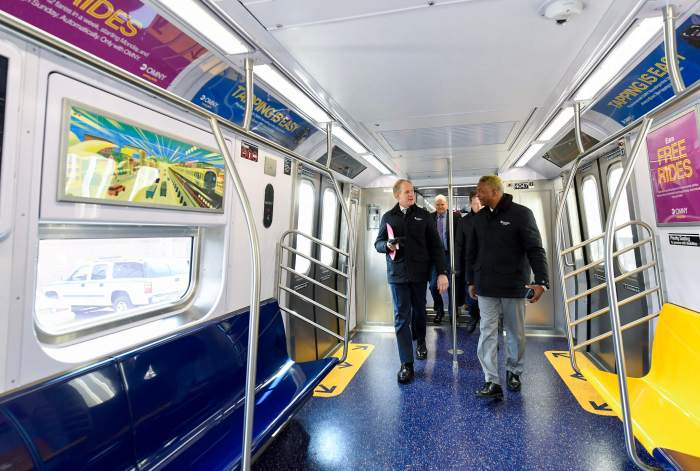
“New Yorkers always want and deserve train cars that haven’t lived through eight presidents like our beloved R46s,” Lieber said at a press conference before riding the R211. “We do love the R46s, we love the color scheme, we love the old-timeyness. But it’s time for them to go for a swim.”
The MTA first announced the cars of the future back in 2018, signing a contract worth up to $4 billion what could ultimately be more than 1,600 train cars. The first 535 cost $1.45 billion.
But their arrival in New York was delayed for over a year both by the pandemic and by various issues at Kawasaki’s Lincoln, Nebraska plant, including chronic mismanagement and frequent employee turnover, forcing the MTA to closely monitor Kawasaki’s workflow.
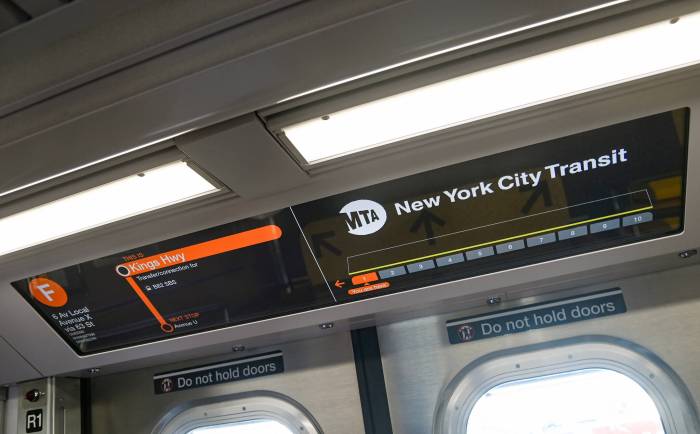
Despite that, the agency executed a contract option in October to purchase 640 more R211s from Kawasaki for $1.78 billion, arguing the state-of-the-art carriages were worth the wait and the cost. The second order of cars is set for delivery by 2025, though the MTA is “holding their feet to the fire” to ensure the cars arrive on schedule.
“I am sympathetic to everybody who has had supply chain issues and labor issues coming out of the pandemic,” said Lieber. “It’s real, we are sympathetic. But it’s our job to insist that the contracts be adhered to, and we are on top of them every day. We are sending people out to Lincoln, Nebraska to watch them and make sure they’re doing it well, because our passengers are waiting for these cars.”
Should testing continue to show promise, the MTA could execute another contract option to order another 437 cars, potentially all of them featuring open gangways.
New York isn’t the only city excited by the R211s, of course. Last year, more than 20,000 residents voted the R211 the “coolest thing made in Nebraska” in a bracket-style contest run by the Nebraska Chamber of Commerce and Industry.



